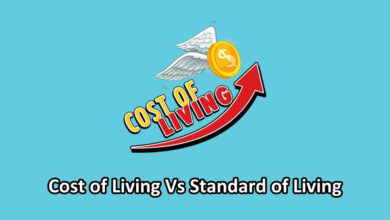Are you tired of juggling multiple marketing tasks and struggling to keep up with the ever-evolving world of digital marketing? Look no further! In today’s blog post, we are going to dive into the key differences between two essential components of modern marketing: Marketing Automation and Marketing Operations. Whether you’re a seasoned marketer or just starting out, this is your ultimate guide to understanding these powerful tools that can revolutionize your marketing strategies. So grab a cup of coffee and get ready for some eye-opening insights – it’s time to take your marketing game to new heights!
Marketing Automation refers to the use of software and technologies that allow marketers to automate repetitive tasks such as email campaigns, web analytics, lead scoring, customer segmentation, and more. On the other hand, Marketing Operations is a broader term that encompasses all aspects of marketing strategy and execution.
Marketing Automation Vs Marketing Operations (Chart)
| Marketing Automation | Marketing Operations |
|---|---|
| Marketing automation refers to the use of technology and software to automate repetitive marketing tasks and workflows. | Marketing Operations, often abbreviated as “MOPS,” refers to the strategic planning, coordination, and execution of marketing campaigns and initiatives within an organization |
| Marketing Automation is focused on lead generation and nurturing. | Marketing Operations is focused on managing marketing campaigns and initiatives. |
| Marketing Automation involves using software to automate repetitive tasks. | Marketing operation is primarily manual processes but may also use technology for many tasks. |
| It often requires less manpower than Marketing Operations. | It involves more human involvement. |
| Marketing Automation can be used to generate targeted leads and nurture them through the sales funnel. | Marketing Operations is more focused on managing overall campaigns and initiatives. |
| Marketing Automation platforms typically provide more detailed reporting and analytics than Marketing Operations software. | It also offers reporting that is less comprehensive. |
What is Marketing Automation?
Marketing automation is the use of software to automate marketing processes such as customer segmentation, customer data management, and campaign management.
The goal is to reduce the amount of time and effort required by marketers to manage campaigns while producing higher-quality results. Common marketing automation processes include email marketing, content generation, event management, lead scoring, and customer life cycle management.
Benefits of Using Marketing Automation
- Increased Efficiency: Marketing automation can help you to automate repetitive tasks so that you and your team can focus on more important tasks. This can lead to increased efficiency and productivity in your marketing operations.
- Improved Customer Segmentation and Targeting: With marketing automation, you can better segment and target your customers based on their behavior and preferences. This helps you to create more personalized and relevant marketing campaigns that are more likely to convert leads into customers.
- More Effective Lead Nurturing: Automated marketing campaigns can be used to effectively nurture leads through the buyer’s journey with timely and relevant content.
- Greater Insight Into Your Marketing Performance: Marketing automation provides detailed tracking and reporting features that give you greater insight into your marketing performance.
- Reduced Marketing Costs: Automating your marketing operations can help you to save on costs by eliminating the need for manual tasks and processes. This can free up the budget to invest in other areas of your marketing strategy, such as customer acquisition or lead generation activities.
What is Marketing Operations?
Marketing operations is the execution of marketing programs and campaigns to generate leads, customers, or sales. It is the process of creating and managing the systems, processes, and technology that bring together various marketing tools such as content, email, advertising, social media, search engines, and analytics.
It is focused on executing campaigns to acquire new customers, nurture existing relationships through integrated customer experiences, and measure outcomes with data.
Benefits of Using Marketing Operations
- Improve Efficiency and Productivity: By streamlining and automating tasks, marketing operations can help teams improve their efficiency and productivity. This frees up time and resources that can be better spent on strategic initiatives that drive results.
- Increase Visibility and Control: With marketing operations in place, teams have greater visibility into their performance and can more easily identify areas for improvement. This leads to better control over the direction of the team’s efforts and improved ROI.
- Facilitate Scalability: As businesses grow, their marketing needs will change and expand. Marketing operations can help facilitate this growth by putting processes in place that can be easily scaled up or down as needed.
- Enhance Collaboration Across Teams: In order for marketing to be successful, it must be aligned with other departments within the organization such as sales, IT, and product development. Marketing operations can help ensure this alignment by coordinating efforts across teams and ensuring everyone is working towards common objectives.
- Provide Data-Driven Insights: By tracking and analyzing data, marketing operations can provide insights into marketing performance that can be used to inform future strategies. This allows teams to optimize their efforts and get the most out of their marketing budget.
Key Differences Between Marketing Automation and Marketing Operations
Marketing automation and marketing operations may seem similar at first glance, but there are several key differences between the two. Marketing automation is focused on lead generation and nurturing, while marketing operations is focused on managing campaigns and analyzing data.
Marketing automation software is designed to automate repetitive tasks, such as email marketing, social media postings, and targeted ads. It can also track leads through their journey from initial contact to conversion. Marketing operations, on the other hand, is focused on managing campaigns end-to-end, including planning, budgeting, execution, tracking, and analysis.
Other differences are:
- Marketing Automation is focused on lead generation and nurturing, while Marketing Operations is focused on managing marketing campaigns and initiatives.
- Marketing Automation involves using software to automate repetitive tasks, while Marketing Operations typically does not.
- Marketing Automation often requires less manpower than Marketing Operations, since many tasks are automated.
- Marketing Automation can be used to generate targeted leads and nurture them through the sales funnel, while Marketing Operations is more focused on managing overall campaigns and initiatives.
- Marketing Automation platforms typically provide more detailed reporting and analytics than Marketing Operations software.
How Marketing Automation and Marketing Operations Work Together
Marketing automation and marketing operations are two essential pieces of the puzzle when it comes to effective marketing. Marketing automation software helps you automate repetitive tasks, freeing up your time to focus on strategy and creativity. On the other hand, marketing operations is all about planning, executing, and measuring marketing campaigns to ensure they’re as effective as possible.
The two functions often work hand-in-hand: marketing automation can take care of the nitty-gritty details of a campaign so that marketing operations can focus on the bigger picture. Marketing automation can also help with things like lead nurturing and email drip campaigns, which are essential for keeping leads warm until they’re ready to be passed off to sales.
Both marketing automation and marketing operations are essential for any successful marketing team. By working together, they can take your campaigns to the next level and help you close more deals.
Conclusion
Businesses need to understand the key differences between marketing automation and operations in order to make informed decisions about their strategies. Marketing automation is a powerful tool that can help streamline processes, drive efficiency and improve customer experience. However, it requires careful planning and execution for success. On the other hand, marketing operations offer insights into market trends, target audiences, and overall performance of campaigns. Both tools should be employed strategically with clear objectives in mind in order to ensure maximum returns on marketing investments.


